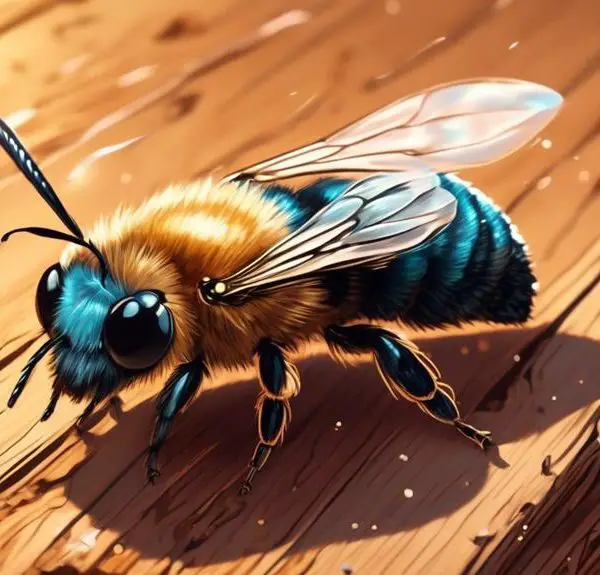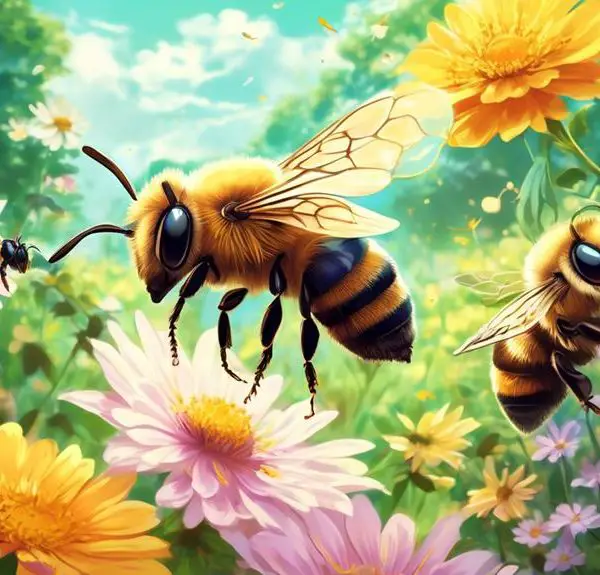Solitary yet intriguing, delve into the unique lifestyle of mason bees and the mystery of their colonization habits.

Do Mason Bees Colonize?
Remember the good old days of our ancestors when communities lived together in close-knit colonies? Well, you might imagine that mason bees, like their honeybee counterparts, also follow this communal lifestyle.
However, the reality of mason bee life may challenge your preconceived notions. Unlike honeybees, mason bees are solitary creatures, each female building and provisioning her own nest without help from a hive.
But does this mean they don't colonize? Let's explore this further, shall we?
Key Takeaways
- Mason bees have a solitary lifestyle and do not form colonies like honey bees.
- Each female mason bee creates her own nest and operates independently in a communal setting.
- Mason bees do not have a queen or a hierarchical structure like honey bees.
- They have greater resilience to pests and diseases and are efficient pollinators, contributing significantly to biodiversity and plant health.
Understanding Mason Bees Behavior
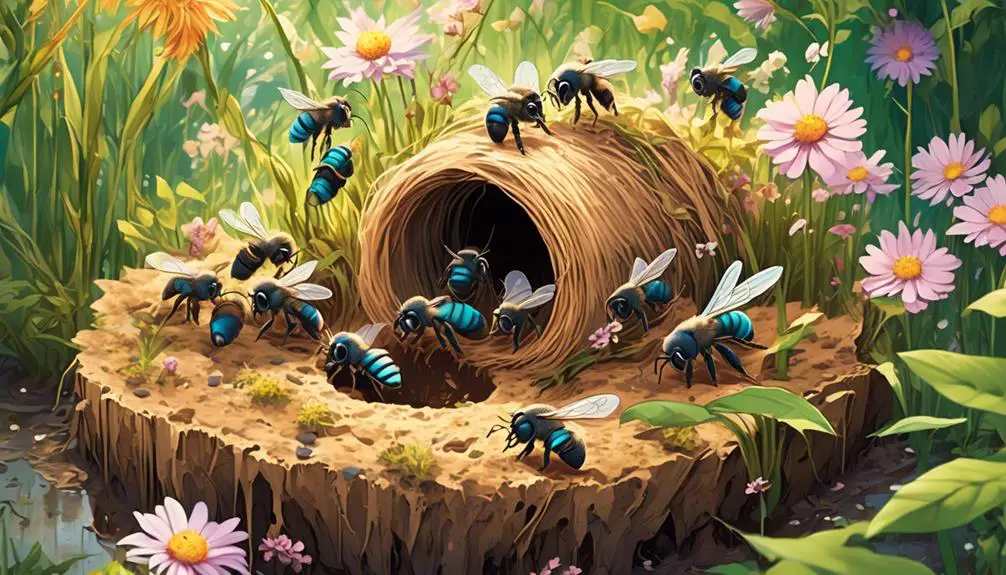
Before delving into the intricate behaviors of Mason Bees, it's essential to understand that these industrious pollinators exhibit distinct traits that set them apart from other bee species. They're solitary, non-aggressive, and, unlike honeybees, they don't live in hives. Instead, they nest in pre-existing holes in wood, where they lay eggs and pack them with a mixture of pollen and nectar for their offspring to feed on.
You'll find that Mason Bees are non-conformist architects. They'll seek out hollow reeds or holes in wood, and they don't mind if it's a human-made structure. They'll even inhabit your garden, if you're lucky. The female will line each cell with mud to protect the larvae, hence the name 'Mason'. She'll lay an egg, deposit food, and seal it off with more mud before moving on to the next cell.
Their unique nesting behavior and solitary nature make them an intriguing study, offering insights into adaptation and survival strategies. As a keen observer, you'll soon realize that Mason Bees exemplify the diversity and complexity within the realm of insect behavior.
The Solitary Nature of Mason Bees
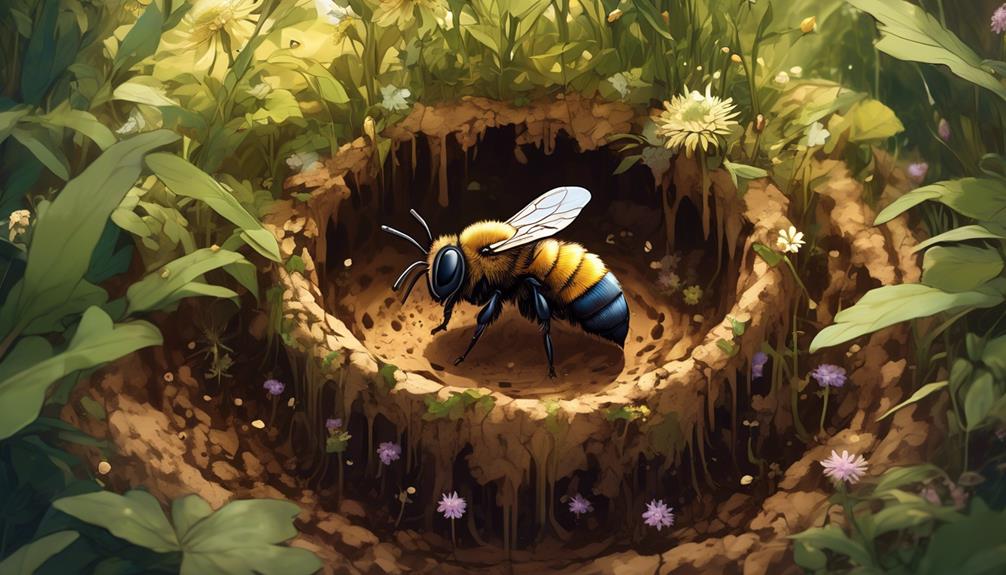
Expanding on their unique behavioral traits, let's now explore the solitary nature of Mason Bees, which is a key factor in their survival and adaptation strategies. Unlike honey bees, which live in complex, social colonies, Mason bees are solitary. Each female is fertile and makes her own nest, and there's no queen bee or worker bees in their societal structure.
Their solitary life cycle begins when a female Mason bee mates, then finds a suitable location for her nest. She'll lay her eggs in the nest, along with a provision of pollen for the larvae to feed on. After sealing the nest, she'll leave, never to return. The larvae hatch, consume the pollen, pupate, and emerge as adults, ready to start the cycle again.
Contrary to what you may think, this solitary lifestyle doesn't mean they're antisocial. Quite the opposite. Mason bees often build their nests close together in a communal setting, creating a sort of 'bee neighborhood'. However, each bee operates independently, focusing on their own survival and reproduction. This lifestyle minimizes competition and promotes genetic diversity, making Mason bees highly successful pollinators.
Mason Bees Vs Honey Bees: Social Structures
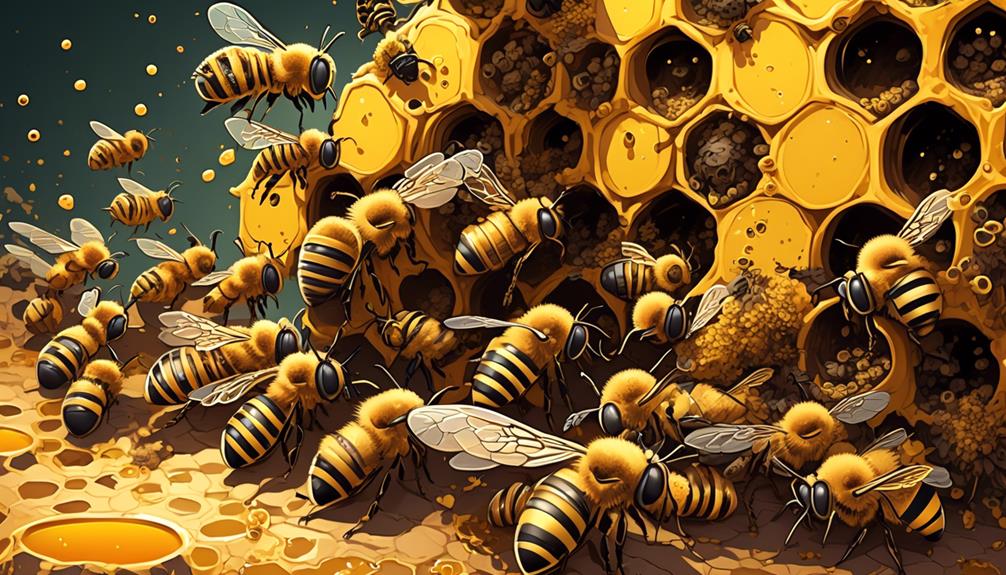
Diving into the comparison between Mason bees and Honey bees, it's essential to note the stark contrast in their social structures, particularly in the roles and responsibilities within their respective colonies.
Mason bees, you'll find, are solitary creatures. Unlike honey bees, they don't form colonies or have a queen. Each female mason bee is fertile, and she makes her own nest, lays her eggs, and cares for her brood independently.
In contrast, honey bees live in highly structured social colonies. They've a single queen who lays all the eggs, worker bees who gather food and maintain the hive, and drones whose sole responsibility is to mate with the queen. This hierarchical structure allows honey bees to maintain large hives and produce significant amounts of honey.
The solitary lifestyle of mason bees offers benefits, such as greater resilience to pests and diseases due to the lack of large colonies. However, they don't produce honey and are less efficient in pollination compared to honey bees.
Understanding these differences can help you wisely choose between these bees for your pollination needs.
The Nesting Habits of Mason Bees
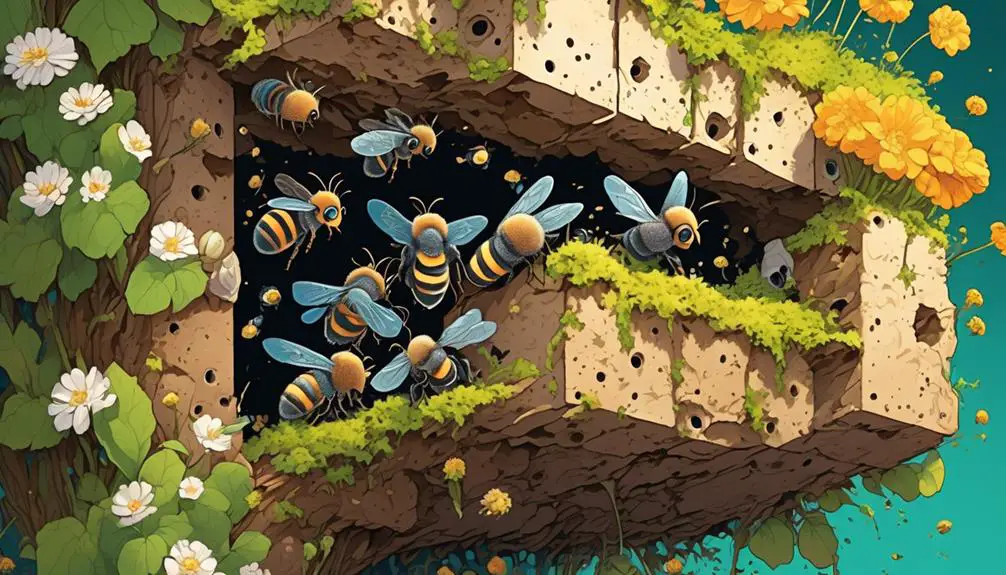
Building on our understanding of Mason bees' solitary nature, let's now explore their distinctive nesting habits, which set them apart from other bee species. Unlike social bees that live in large hives, Mason bees prefer solitary nests usually in pre-existing holes or tubes.
You'll find Mason bees setting up home in hollow stems, woodpecker drillings, or even in the holes in your house's brickwork. They're not picky about their locations, as long as the space is narrow and deep. They aren't into tunneling, so they won't cause damage if they choose your home's structure.
Now, here's where it gets interesting. Inside these nests, the female Mason bee creates a series of cells. Each cell is meticulously crafted with a mixture of nectar and pollen, which serves as a food source for the bee's offspring. The female then lays an egg in each cell and seals it off with a plug of mud, hence the name 'Mason' bee.
This organized and efficient method of nesting illustrates the Mason bee's adaptability. By understanding their nesting habits, we can better support these vital pollinators and ensure their continued survival.
Impacts on Ecosystem and Pollination
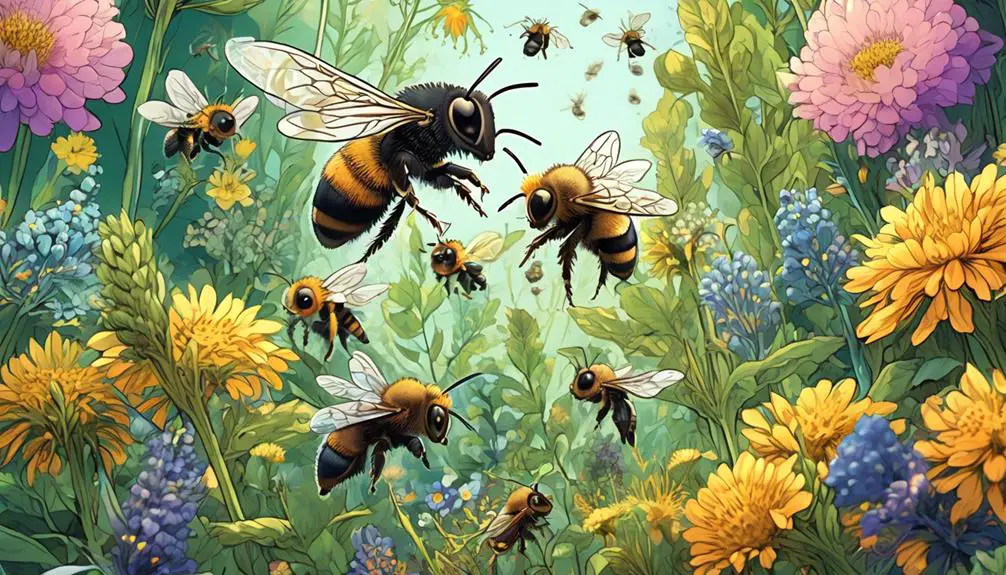
Despite their solitary lifestyle, Mason bees make an enormous impact on our ecosystem and play a critical role in pollination, contributing significantly to the biodiversity and health of plants. As efficient pollinators, they outperform many other bee species. Their unique behavior of collecting pollen on their abdomen allows them to distribute pollen more effectively.
You'll find that Mason bees are crucial in balancing the ecosystem. They pollinate a variety of plants, ensuring genetic diversity in the plant kingdom. Their pollination also indirectly supports other wildlife, as many animals rely on the fruits and seeds that result from successful pollination.
But, it's not just about the numbers. The quality of Mason bees' pollination is also noteworthy. Unlike honeybees that tend to stick to a particular plant species, Mason bees aren't picky eaters. They'll visit a variety of flowers, leading to cross-pollination.
Unfortunately, their populations are decreasing due to habitat loss and pesticide exposure. This decline could have serious implications for our ecosystems and food supply. So, it's important to create favorable environments for them to thrive. By doing so, you'll not only support these vital pollinators but also contribute to the overall health of our planet.
Conclusion
In wrapping up, you've learned that mason bees aren't colonizers like honey bees. Their solitary nature, unique nesting habits, and crucial role in pollination set them apart.
While they don't form large social structures, each bee contributes significantly to our ecosystem. So, next time you spot one, remember: this little creature is a powerhouse.
The world of mason bees is full of fascinating lessons for us all. Stay curious, and keep exploring!

